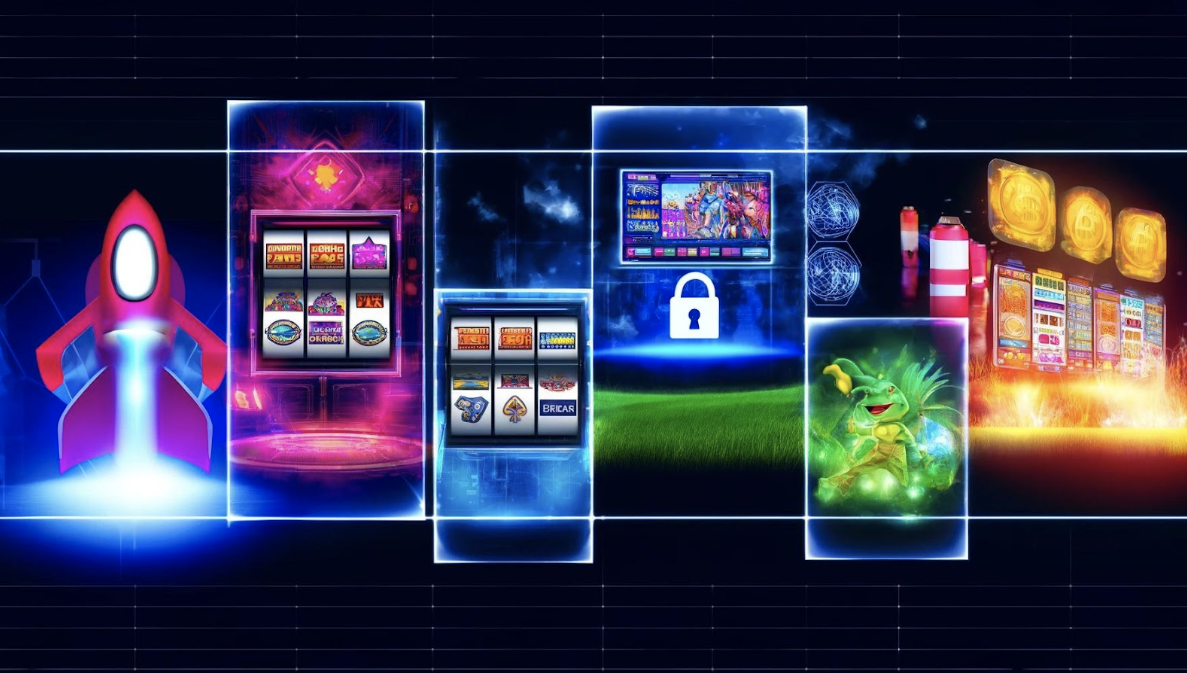Being a gamer myself, I know what we need for a seamless and lag-free gaming experience—a powerful computer coupled with a high speed and low-latency home internet.
That’s my guess: you have already sorted out the prior and now you need a reliable internet service provider (ISP) for gaming. To be frank, the latter is a real daunting task to complete. I have wasted a load of bucks on terminating the contracts, switching ISPs, and calling them to fix the pings & latency only to be disappointed in the end.
To save you from that very hassle I will be talking about the ISPs that I have personally used which gave me a fine experience while knocking down the enemies in the COD Warzone.
Now, without further ado, let’s talk.
The Reliable Internet Service Providers for Gaming in 2024
Unveiling the Contenders: Top Internet Options for Gamers
The Fiber Optic Frontrunner – Google Fiber
The Reliable Cable Challenger – Xfinity
The Wireless Warrior (Emerging Option) – T-Mobile 5G Home Internet
Beyond Speed: Decoding the Key Factors
Frequently Asked Questions (FAQs)
Unveiling the Contenders: Top Internet Options for Gamers
The ISPs I have listed below are arguably the best in supporting a near-to-flawless gaming experience.
They offer affordable plans, fiber-based connection (limited), stable pings & latency, and a few extra perks that you might be interested in. I have categorized them based on their connection type so that it would be easy for you to find the one you want.
The Fiber Optic Frontrunner – Google Fiber
It might sound like I am exaggerating but no: Google Fiber, hands-down, is the best internet service provider available in the US. Why am I making that claim?
Pros
Pure fiber-powered connection: Google Fiber is one of the few ISPs in the US that provides fiber connection directly to your home. I mean your router will be getting the data packets only on the fiber optical cables. Other ISPs use a hybrid model to deliver the WiFi connection to your home.
Symmetrical speeds: Thanks to the fiber cables, users get equal download and upload speeds which is good for gaming and great for working from home.
Super-Fast: If you are a power user who needs a massive bandwidth, Google Fiber can cater to that through its ultra-fast 8 gigs plan.
Cons
Limited availability: You’d be lucky to have Google Fiber in your area as it has super limited availability in a few states.
Plans can’t be termed affordable: As a fiber-based internet provider, the plans it offers are on the pricier side when compared to the rest of the providers.
The Reliable Cable Challenger – Xfinity
Xfinity or Comcast Xfinity is one of the biggest ISPs in the US in terms of coverage. It covers 41 states in the US through its wide cable network. Though cable internet is considered unreliable, Xfinity stands out as an exception through its low outage rate, latency, cheap internet plans, and above all its availability.
Why you should consider Xfinity?
Pros
Availability: Xfinity’s biggest edge for being an ISP is its availability. It covers almost all the major states in North America. There is a high chance that even if your area doesn’t have many options, Xfinity will be there.
Affordability: It’s one of the most affordable home WiFi in the US with plans starting as low as $19.99 a month. I won’t recommend the basic plan for gaming because of its slower upload speeds.
Low Pings & Latency: When I was using Xfinity, it provided me with a smooth gameplay with latency at 25-55ms and pings peaked at 75ms which is good for gaming.
Fiber Availability: For the most part Xfinity is a cable internet provider but it provides fiber-powered connection in some of the areas too.
xFi Gateway: Though it’s one of the add-ons of the Xfinity internet plans, it makes things even sweeter by turning your plan data caps-free.
Cons
Price change: The introductory price is available for a limited time and then the provider increases the price adding additional expense to your monthly bills.
Contracts: The cheapest plan might accompany a contract with itself for which you have to pay when switching ISPs.
The Wireless Warrior (Emerging Option) – T-Mobile 5G Home Internet
If you don’t have any option for fiber or even cable internet in your area, you can always rely on T-Mobile 5G Home Internet. It basically can turn a 5G network into a WiFi network and provides a stable internet connection. The pings and latency I got when I was on that network were surprisingly low.
It’s one of the best stop-gap solutions until you get a fiber or cable-based connection because the speeds are limited. Here’s why you should consider it:
Pros
Low and stable latency: Based on a 5G network the latency that you are going to get will be fairly low as compared to the other wireless plans that are based on 4G.
No contracts: The plan will be free of contracts which means you can switch whenever you have a better provider in your area without paying a penny.
Unlimited data: This one is arguably the best thing about T-Mobile 5G Home Internet. You can consume as much content as you want, download as many games as possible and you still won’t run out of the data.
Cons
Neither affordable nor expensive: Its plans start at $50 a month which, I think, can neither be called affordable for the speeds they offer and nor expensive.
Limited internet speeds: It depends on the wireless 5G network that’s why the internet speeds are limited and users can’t have gigabit speeds with this type of connection.
Beyond Speed: Decoding the Key Factors
While speed is a crucial aspect of gaming, other significant factors can make or break your online gaming experience. Let’s talk about these critical elements.
Latency: The Silent Assassin of Online Gaming
Latency, often referred to as ping, is the delay between a player’s action and the game’s response. Even the fastest internet connections can suffer from high latency, causing frustrating lag. Gamers need to choose ISPs that offer low latency to ensure smooth and responsive gameplay.
Bandwidth: Sharing is Caring, But Not Too Much
Bandwidth determines how much data can be transmitted over your internet connection at one time. While high bandwidth is beneficial, it’s essential to balance it with the number of devices and users in your household. Gamers should aim for an ISP that provides ample bandwidth without overselling, ensuring that gaming performance remains top-notch even when others are streaming or downloading.
Data Caps: The Gamer’s Worst Nightmare
Data caps can be a severe limitation for gamers, especially with the increasing size of game downloads and updates. An ideal ISP for gaming should offer plans with high or no data caps to avoid throttling or additional charges, ensuring uninterrupted gaming sessions.
Matching Your Needs to the Perfect Connection
Different types of gamers have different requirements. Here’s how to match your gaming style to the right internet connection.
The Competitive Esports Athlete
Competitive gamers need the best of the best. Low latency, high bandwidth, and no data caps are non-negotiable. Fiber-optic connections are often the best choice for these players, offering the fastest and most reliable service.
The Casual Weekend Warrior
Casual gamers don’t need the same level of performance as competitive players but still require a reliable connection. A mid-tier plan from a reputable ISP that balances speed, latency, and bandwidth can provide an excellent experience without breaking the bank.
The Streamer with Big Dreams
For aspiring streamers, both upload and download speeds are crucial. Look for ISPs that offer high-speed connections with symmetrical speeds, meaning the upload speed is as high as the download speed. This ensures smooth streaming without buffering or lag, keeping viewers engaged and happy.
Optimizing Your Network: Beyond the Router
Even with the best ISP, optimizing your home network is essential to achieve the best gaming performance.
Location, Location, Location: Router Placement Strategies
Placing your router in a central location can significantly improve your Wi-Fi signal strength and coverage. Avoid placing it near walls, metal objects, or electronic devices that can interfere with the signal.
Banishing Buffering: Prioritizing Gaming Traffic
Quality of Service (QoS) settings on your router allow you to prioritize gaming traffic over other types of data. This ensures that your gaming data is given priority, reducing lag and improving overall performance.
Wired vs. Wireless: The Eternal Debate
While wireless connections offer convenience, wired connections are typically more reliable and provide lower latency. Whenever possible, connect your gaming devices directly to the router using an Ethernet cable for the best performance.Frequently Asked Questions (FAQs)
1. What is a good internet speed for gaming?
A good internet speed for gaming varies depending on the type of game and platform. For PC gaming, speeds between 10 Mbps to 20 Mbps are typically sufficient. Console gaming may require between 50 Mbps to 100 Mbps, while VR gaming needs significantly higher speeds, ranging from 225 Mbps to 400 Mbps. The key is to ensure that your download and upload speeds can handle the data flow without lag.
2. How does latency affect online gaming?
Latency, often measured as ping, is the time it takes for data to travel from your device to the game server and back. High latency can result in delays and lag, which are detrimental to gaming, especially in fast-paced or competitive games. A lower latency, ideally below 50ms, ensures smoother gameplay and faster response times.
3. Are data caps a concern for gamers?
Yes, data caps can be a significant concern for gamers. Many ISPs impose data limits that, if exceeded, can lead to additional charges or throttling of internet speeds. Since modern games and updates can be very large, often exceeding 100GB, it’s crucial to choose an ISP with either high data caps or unlimited data plans to avoid interruptions and extra fees.
4. Is 5G a good option for gaming?
5G can be a good option for gaming due to its high speeds and lower latency compared to traditional mobile data connections. However, its reliability can vary based on location and network congestion. Fixed 5G home internet services from providers like T-Mobile and Verizon have shown good reliability and can be a viable alternative to wired connections for gamers.



















